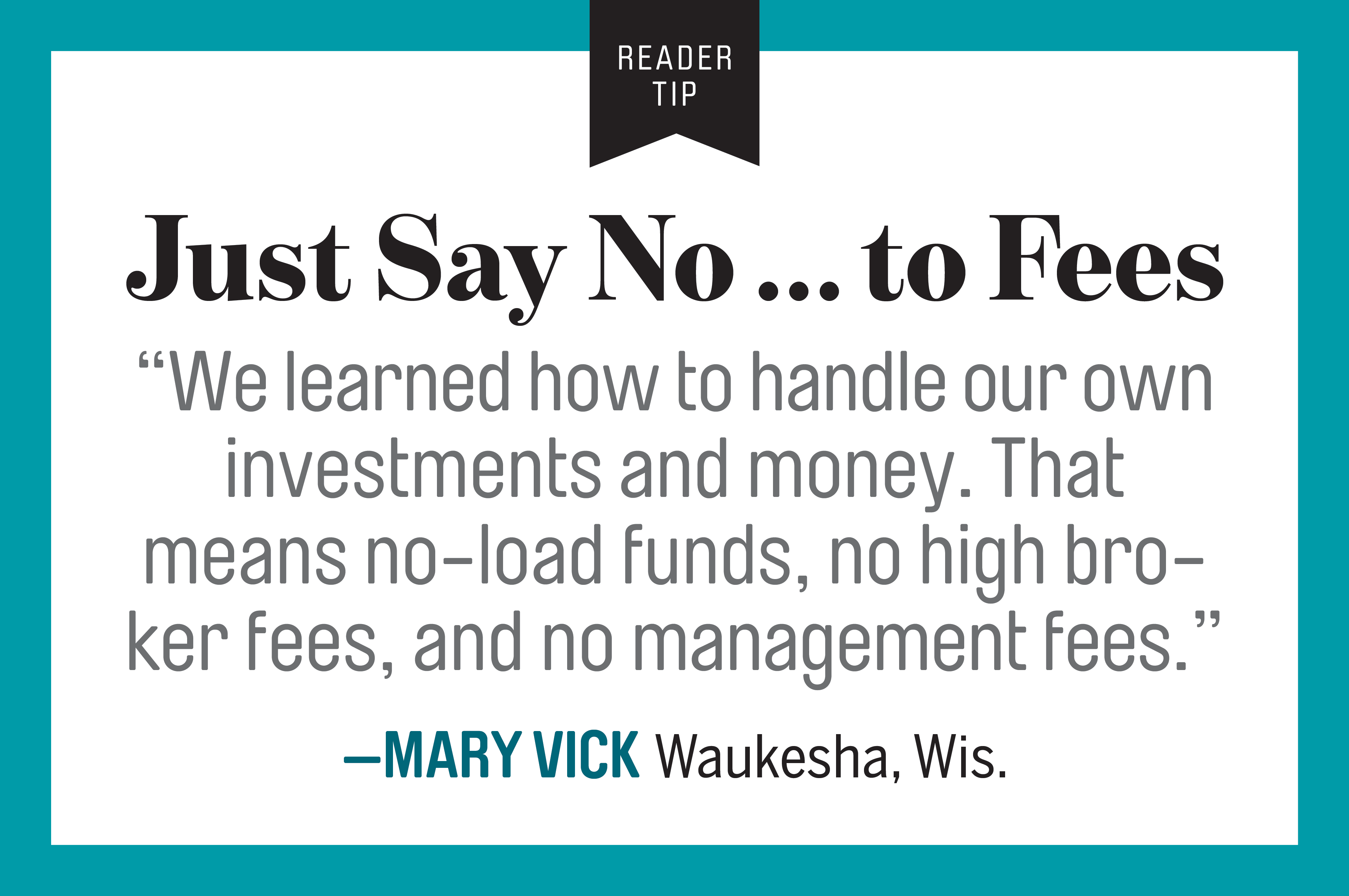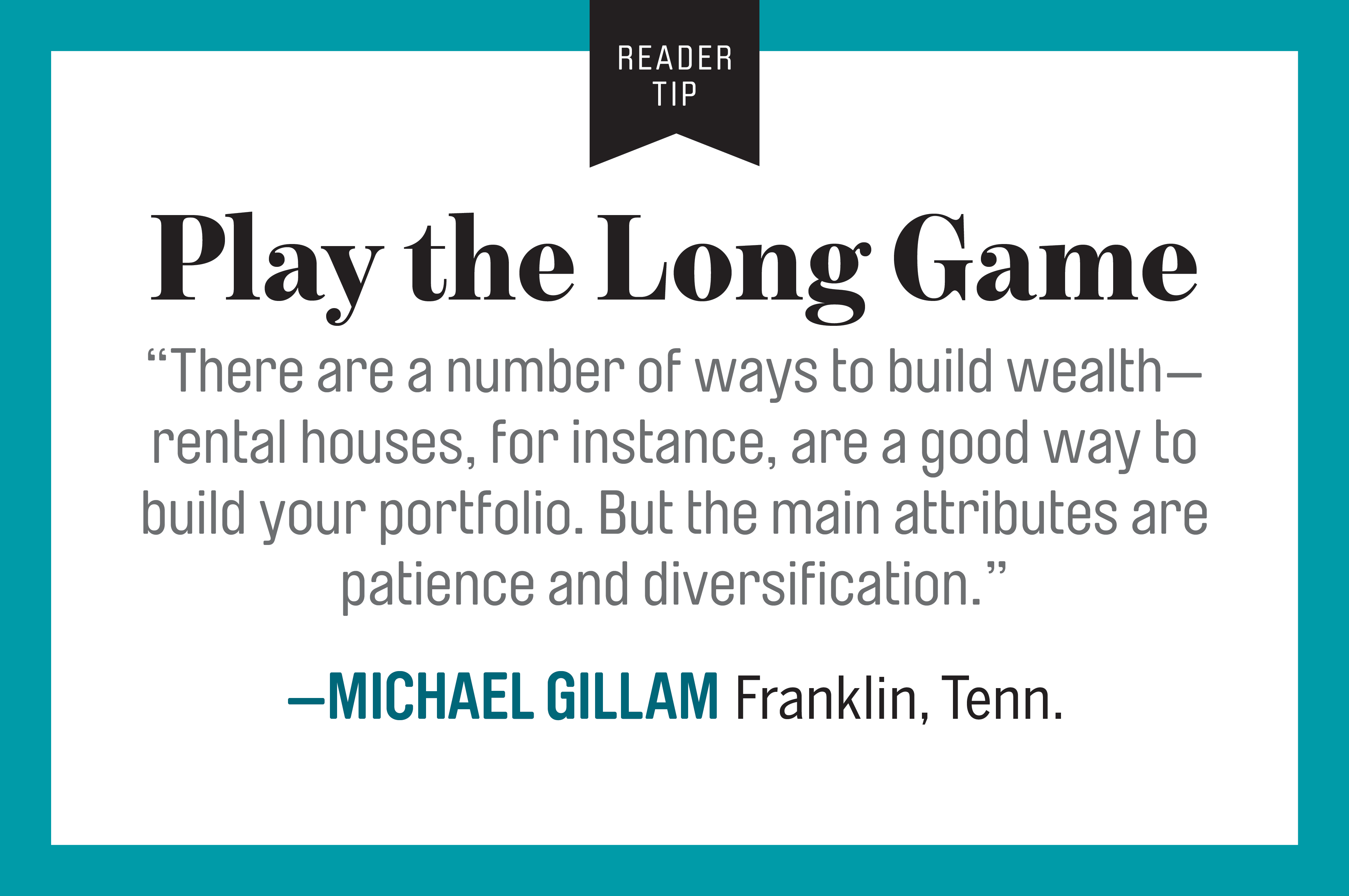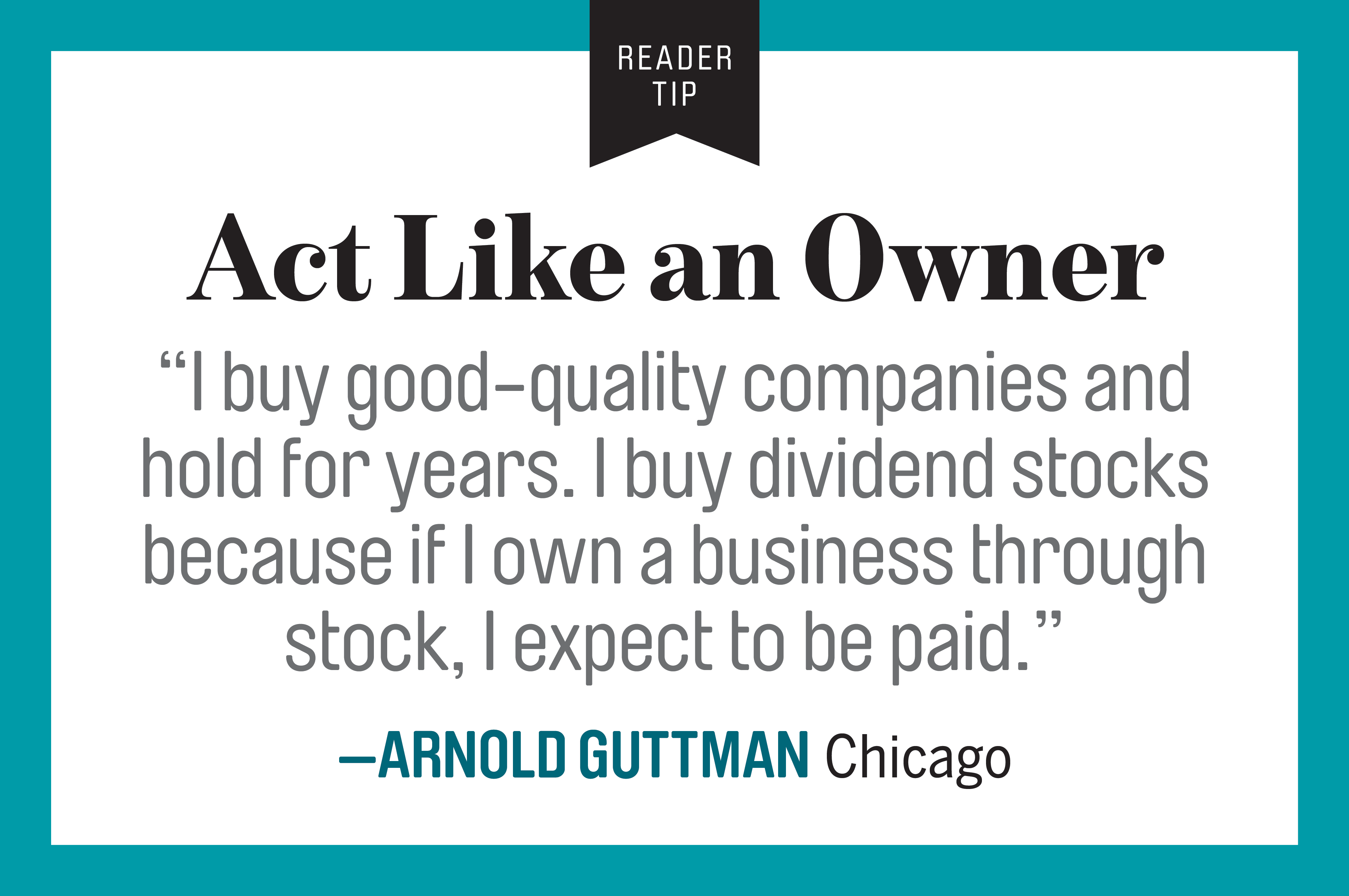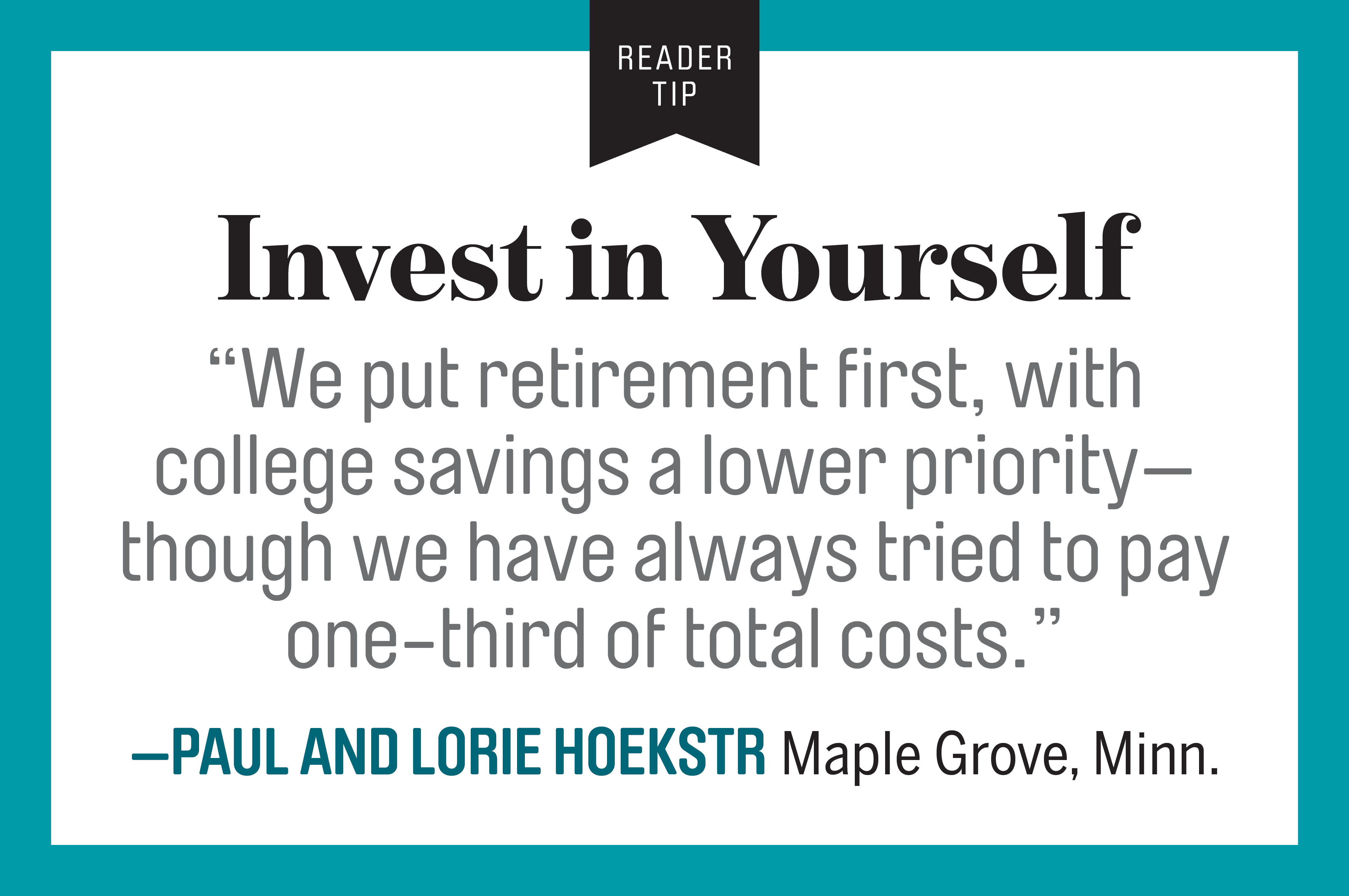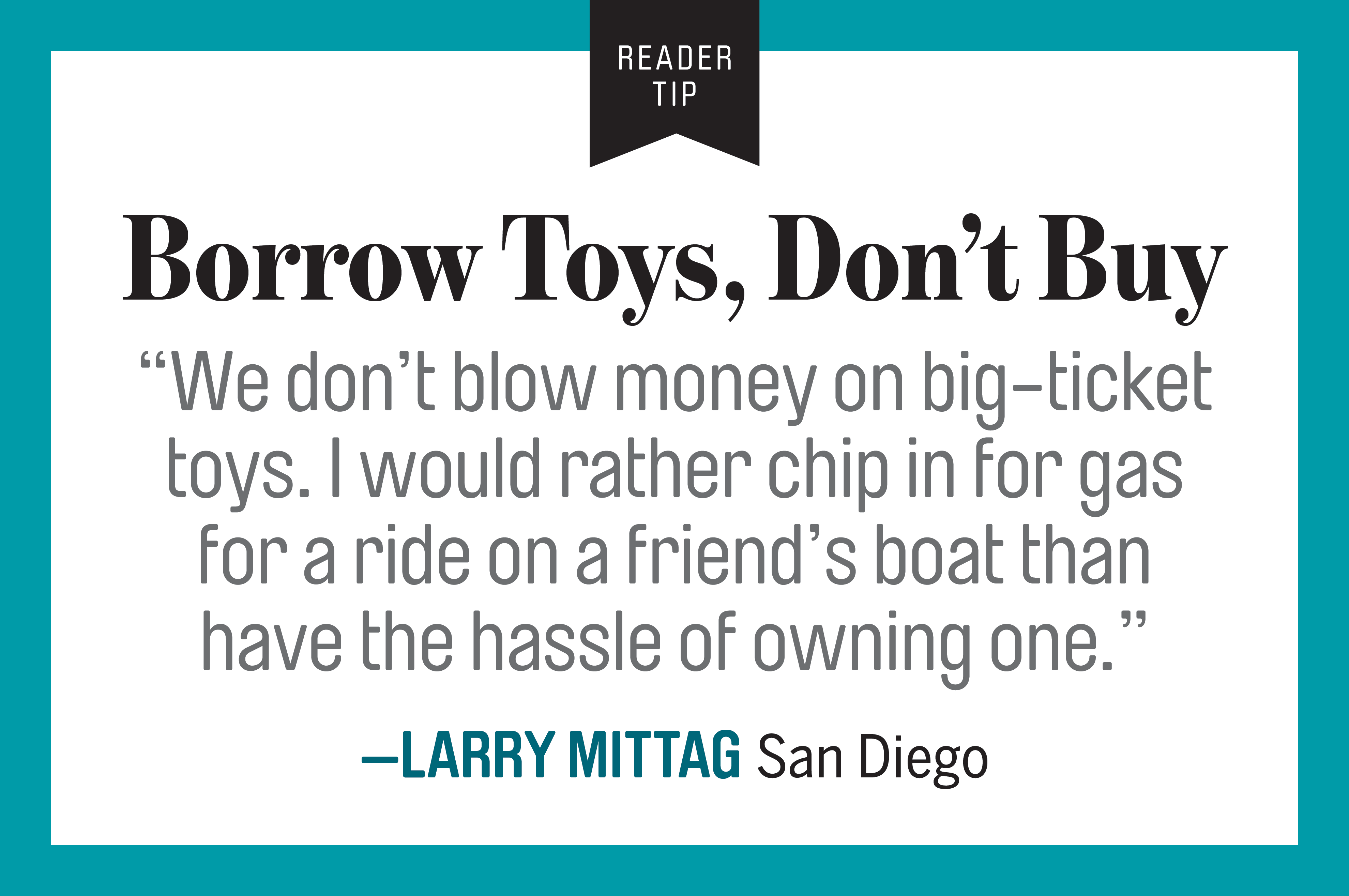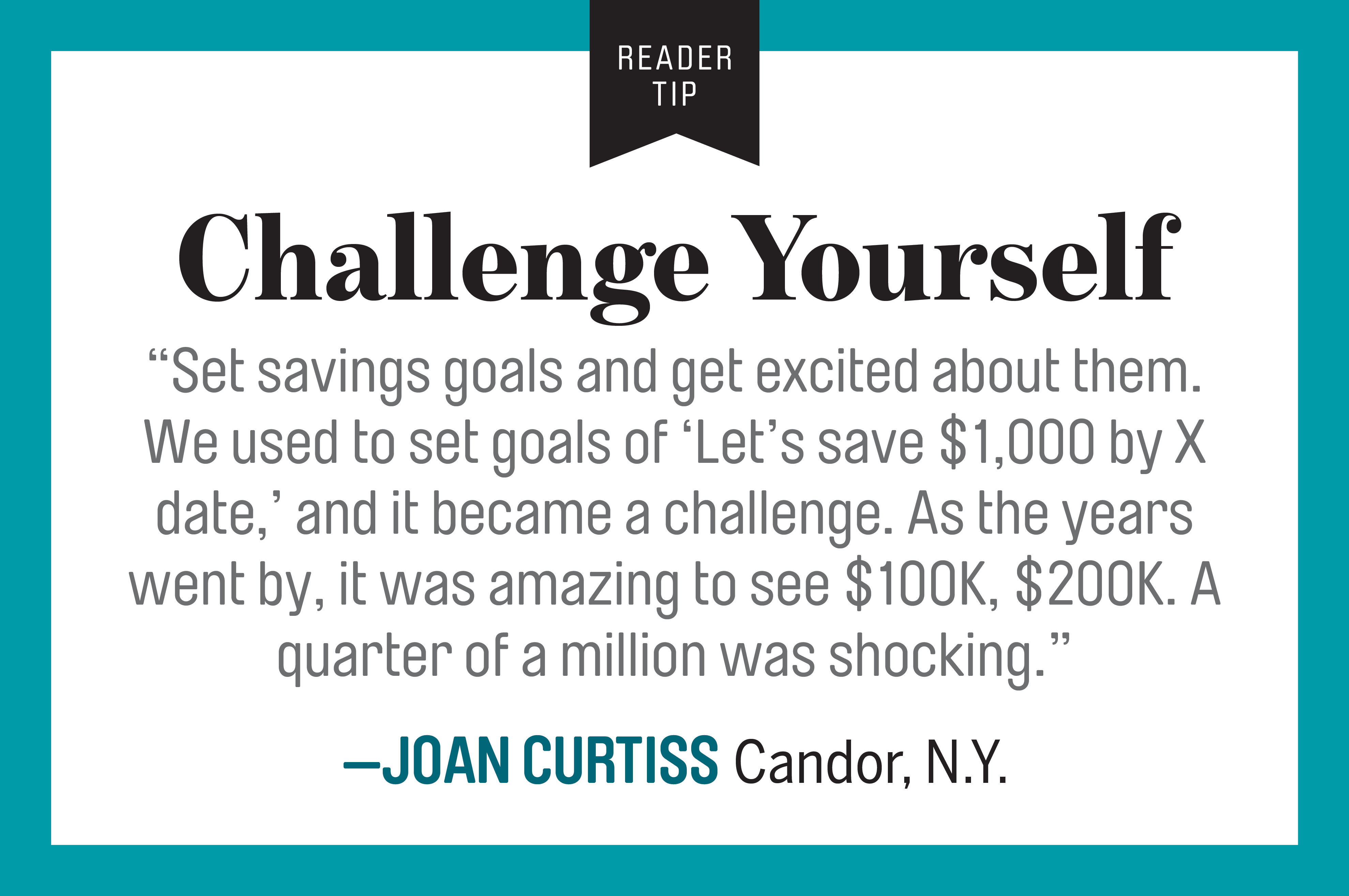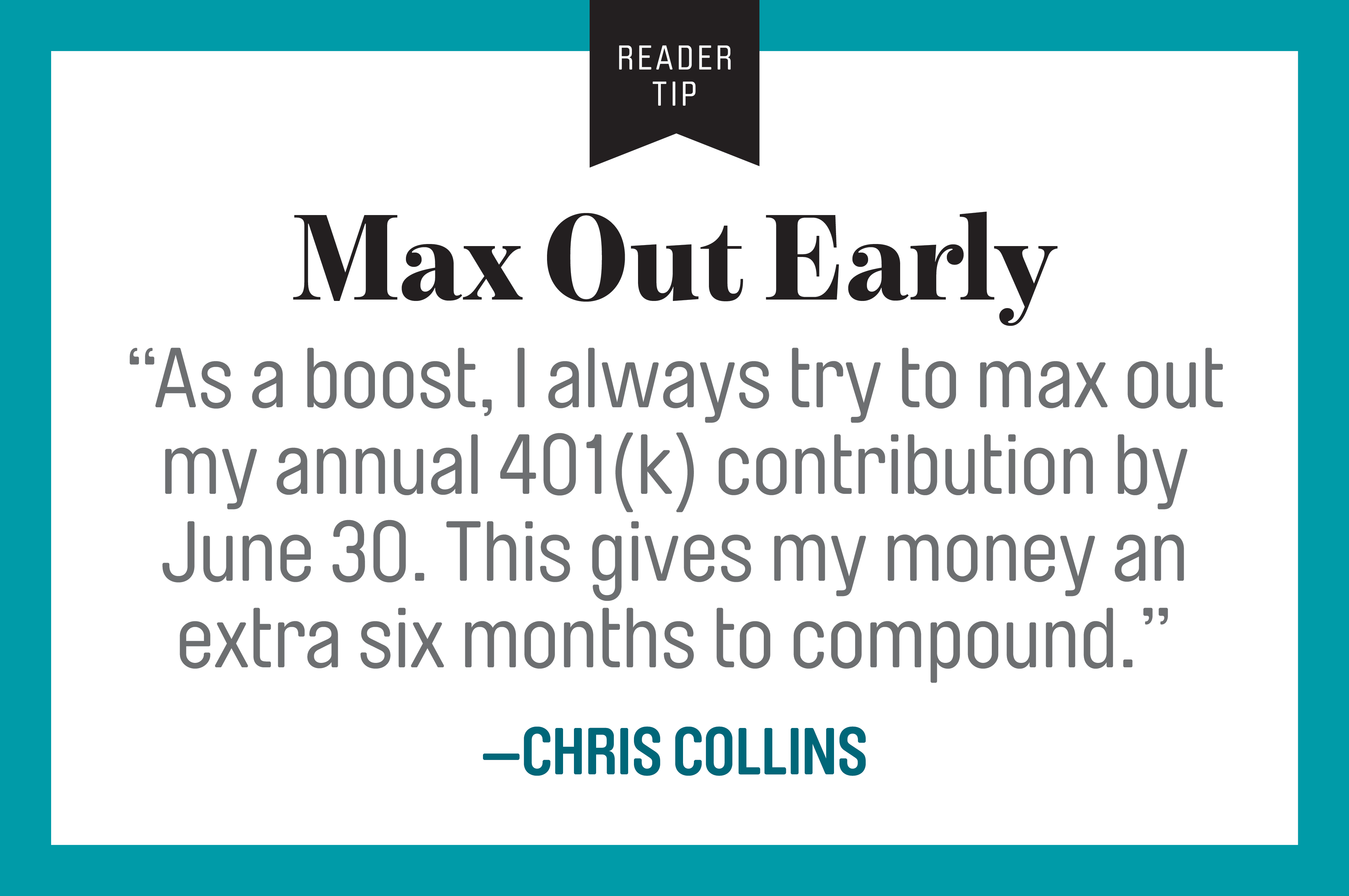6 Ways To Avoid Taxes Like a Millionaire

In the first two installments of the series "How to Reach $1 Million," you learned key investing strategies for millionaires-in-the making and tips for boosting your salary. Part Three below offers smart ideas for lowering your tax bill as you build wealth.
Two out of three millionaires worry about the tax implications of their investments, according to a survey by the Spectrum Group. With good reason: Research by Vanguard says taxes can cost as much as two percentage points in returns a year. The price tag: $70,000 if you were to invest $10,000 annually for 20 years and earned 4% on your money instead of 6%. Follow these strategies for minimizing your tax bill, no matter how you are charting your path to a million—via investments or your own business.
Your Investments
Find the right home for your funds
Use your 401(k)s and IRAs for investments that throw off short-term capital gains or interest income, which are taxed as ordinary income. This means taxable bond funds, high-yielding dividend stock funds, and actively managed funds that trade frequently. Then use taxable accounts for buy-and-hold equity funds that trade infrequently, such as index funds, and muni bond funds. Being smart about “asset location” can save up to 0.75 points a year in returns, says Vanguard senior investment strategist Joel Dickson.
Make Uncle Sam share your pain
Sell stocks that are down and use the losses to offset gains elsewhere in your account. Over the past decade, doing so once a year at year-end has added 0.6 points in annual return to your taxable account, according to Wealthfront, an automated investment service. (This assumes a combined federal and state tax rate of 42.7% for short-term gains and 24.7% for long-term gains.)
Expand your alphabet
Even among millionaires, more than a third are worried about rising health care costs, according to a PNC survey. That’s understandable. A typical 65-year-old couple will spend $260,000 throughout retirement on health care, Fidelity says. If you choose a high deductible health plan, you can contribute up to $3,350 in pretax money as an individual or up to $6,750 for a family to a tax-sheltered health savings account, or HSA ($7,750 for those 55 and older). “I call them the health care IRA,” says Marty McCutchen, a certified public accountant.
Take Our Quiz: Do You Have What It Takes To Be a Millionaire
As with 401(k)s and IRAs, money that goes into an HSA is tax-deductible and is allowed to grow tax-free. If you saved $6,750 a year for 20 years in an HSA, earning 6% annually, you would have $248,000—enough to cover average medical costs. And withdrawals for qualified health care needs are tax-free.
Read: One of the Easiest Ways to Cut Your Tax Bill? Max Out Your HSA
Your Business
Structure your business the right way
Eight out of 10 millionaires who are entrepreneurs built their businesses from the ground up, according to a U.S. Trust survey. Only 2% inherited them. Early on, a sole proprietorship is often the best way to limit taxable income. If you lose money at first, you can use losses to offset other income, including capital gains, which is harder to do in a corporation, says certified public accountant Sandy Botkin.
But if you seek liability protection and start generating close to a six-figure income, electing to pay taxes as an S corporation—rather than a limited liability company, or LLC—could help you avoid getting killed by self-employment taxes, covering Social Security and Medicare.
Read: How Do I Decide Between a SIMPLE IRA, a SEP IRA, and an Individual 401(k)?
While workers pay only half of their Social Security and Medicare taxes—their employers cover the rest—the self-employed are hit with the full 15.3% rate. But an S corp lets you control how you’re paid. If your firm earns $150,000, you may opt to pay yourself a salary of $75,000 and take the rest as a so-called distribution of earnings. You’d pay only the self-employment tax on your $75,000 salary. An S corp also avoids the 3.8% Medicare surtax imposed by Obamacare on high earners.
This move would save you more than $7,000 a year, estimates CPA Jeff Cohen, partner at Grassi & Co.: “That’s a layup.”
Recruit your spouse
Four out of 10 wealthy entrepreneurs like to hire their kin, according to U.S. Trust. At the same time, six in 10 are worried about taxes. Address both issues by hiring a spouse and putting a large chunk of his or her salary into a 401(k) plan. That will reduce your joint taxable income and boost retirement savings, says McCutchen. The maximum contribution for 2016 is $18,000, or $24,000 for those 50 and older. If you have a solo 401(k), you can add your spouse to it.
Hire the kids
Saving for college and finding that there’s little left for your own retirement? Hire your children and set up a direct transfer of their pay to a tax-sheltered 529 college plan or Roth IRA, says Botkin.
The first $6,300 they earn will be tax-free for them because they will get an equivalent standard deduction on their tax return. They will be taxed at 10% on the next $9,225. Plus, their wages will be a tax-deductible business expense for you, as are wages you pay others. Just make sure you assign the kids work that’s reasonable for their age. And don’t pay them excessively, in case of an IRS audit.

